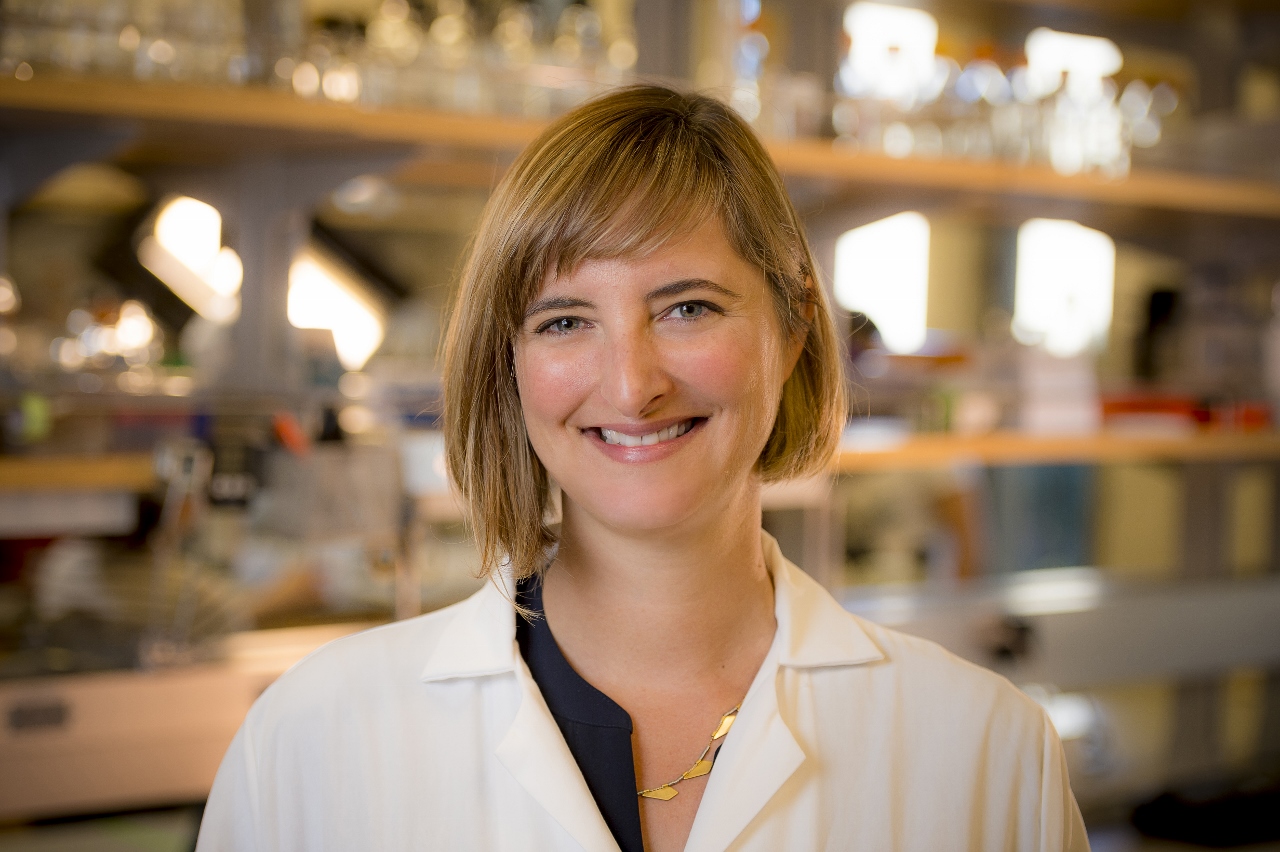Rachel Dutton Awarded Packard Fellowship
October 14, 2016
By Kim McDonald

Photo by Erik Jepsen, UC San Diego
A molecular biology professor at the University of California San Diego who developed an innovative way to understand the development and evolution of microbial communities using cheese is one of 18 early-career scientists and engineers nationwide who have won prestigious 2016 Packard Fellowships for Science and Engineering.
Rachel Dutton, an assistant professor of biology in UC San Diego’s Division of Biological Sciences, will receive a grant of $875,000 over the next five years to pursue her research, which makes use of different kinds of artisanal cheeses as “a simple model system to uncover the inner workings of life within microbial communities.”
Dutton graduated from UC San Diego in 2002 as a molecular biology major, received her doctorate at Harvard University and returned to her alma mater last fall after a five-year independent fellowship at Harvard during which she applied new genetic sequencing techniques to reveal the bacteria and fungi responsible for more than 130 varieties of artisanal cheeses from 10 countries around the world.
“Cheese, I thought, was the most promising biological system because it has an intermediate level of diversity,” said Dutton, unlike yogurt, for example, which is produced by just two kinds of bacteria. “It’s not super complex, but it’s not super simple, which means we have interactions, properties and dynamics that we wouldn’t see in a simpler system. And we also have both bacteria and fungi, so this is a way to study a fairly diverse set of organisms in an ecosystem that’s a microbiologist’s dream.”
Dutton is part of a new campus-wide Microbiome and Microbial Sciences Initiative at UC San Diego designed to bring together researchers whose collaboration should lead to a more detailed understanding of microbiomes—the distinct communities of bacteria, viruses and other microorganisms that live within and around us—to benefit human health and the environment.
With cheese, she said, “we have the potential to discover a lot of new biology because we’re looking at communities in a way that’s difficult to do in other systems and we can actually work with them in the lab."
Dutton’s research with cheese will be showcased this fall throughout San Diego and on newly designed trolley cars to display UC San Diego’s unconventional distinctiveness and innovation.
Dutton is the 14th faculty member at UC San Diego to win a Packard Fellowship, which was established by the Packard Foundation in 1988 to provide early-career scientists with flexible funding and the freedom to take risks and explore new frontiers in their fields. Each year, the Foundation invites 50 universities to nominate two faculty members for consideration.
The Packard Fellowships Advisory Panel, a group of 12 internationally-recognized scientists and engineers, evaluates the nominations and recommends Fellows for approval by the Packard Foundation Board of Trustees. The Fellowships program was inspired by David Packard’s commitment to strengthen university-based science and engineering programs in the United States, recognizing that the success of the Hewlett-Packard Company, which he cofounded, was derived in large measure from research and development in university laboratories.
Packard Fellows must be faculty members who are eligible to serve as principal investigators on research in the natural and physical sciences or engineering, and must be within the first three years of their faculty careers. Disciplines that are considered include physics, chemistry, mathematics, biology, astronomy, computer science, earth science, ocean science and all branches of engineering.
Since 1988, the Packard Foundation has awarded $378 million to support 559 scientists and engineers from 52 top national universities. The Packard Fellowships are among the nation’s largest nongovernmental fellowships, designed to allow maximum flexibility in how the funding is used.
Packard Fellows have gone on to achieve significant accomplishments, receiving additional awards and honors that include the Nobel Prize in Physics, the Fields Medal, the Alan T. Waterman Award, MacArthur Fellowships and elections to the National Academies.
